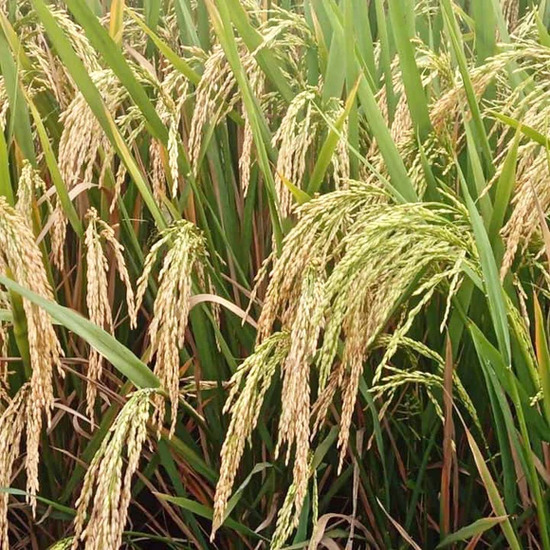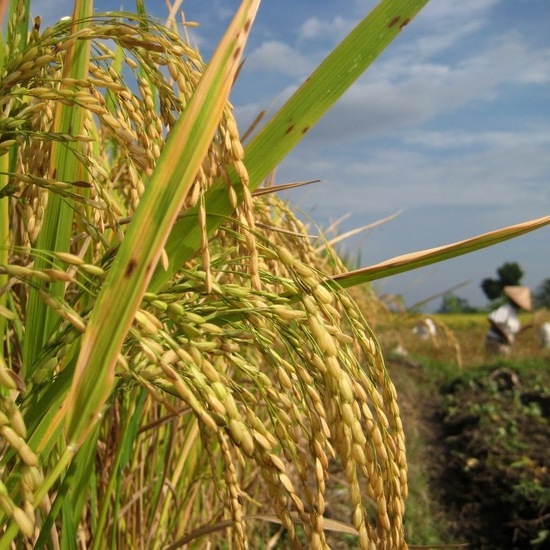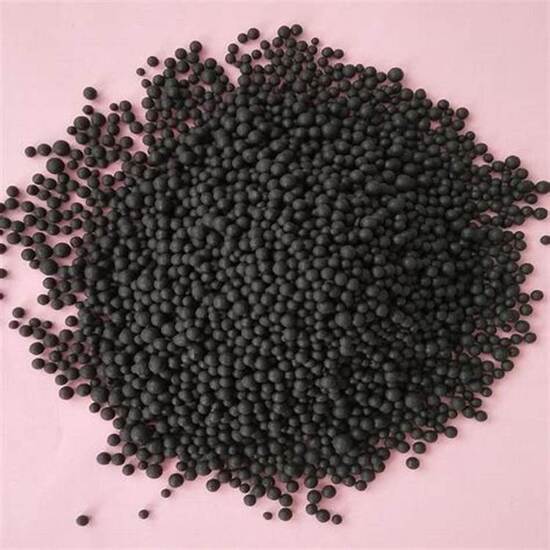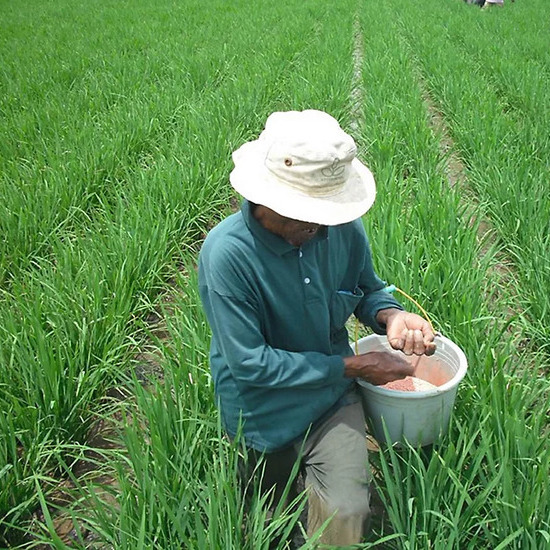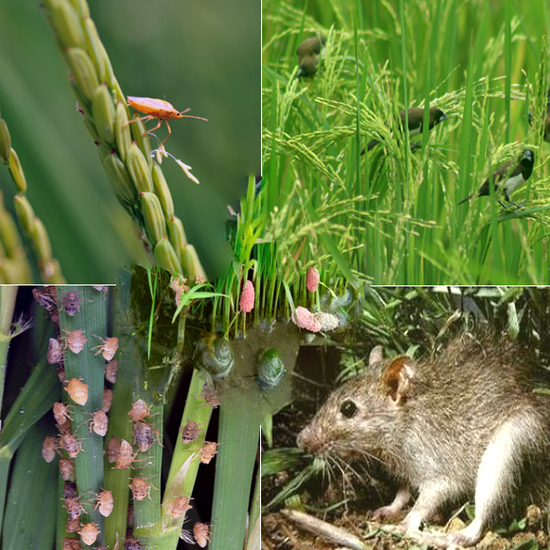Smart Farming Solutions to Increase Rice Production Amidst Climate Change
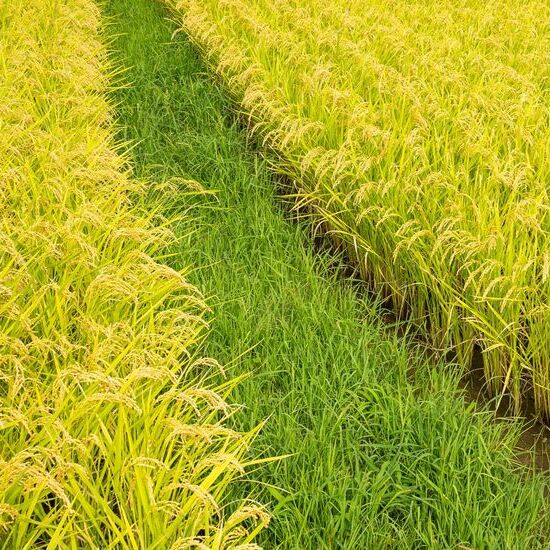
Rice production is an important component of global food security, especially in Asian countries which are the world’s main rice producers. Countries such as India, China, Indonesia, and Thailand contribute the majority of global rice production, which is a staple food for billions of people. However, rice production is now facing significant challenges, especially due to climate change which affects various aspects of agriculture. These challenges include rising temperatures, erratic rainfall patterns, and increased frequency and intensity of natural disasters such as floods and droughts, all of which have negative impacts on crop yields and agricultural productivity.
Climate change not only threatens crop yields but also has a negative impact on the balance of agricultural ecosystems. Weather instability and extreme conditions worsen soil conditions, disrupt the water cycle, and affect plant health. In addition, climate change also increases the risk of pest and plant disease attacks that can damage crops on a large scale. Therefore, it is imperative to adopt a more sustainable and adaptive approach to agricultural practices. One solution that is gaining importance is the implementation of climate-smart agriculture, which integrates modern technologies and sustainable agricultural practices to address these challenges.
Climate-smart agriculture not only aims to increase rice productivity but also to maintain the balance of the ecosystem and the sustainability of agriculture. This approach involves the use of efficient technologies, such as water-efficient irrigation systems, climate-resilient rice varieties, and agroforestry techniques that combine agricultural crops with shade trees. In addition, climate-smart agriculture also includes sustainable management of pests and plant diseases, such as the use of refugia to support populations of natural enemies of pests. By integrating these practices, climate-smart agriculture helps farmers adapt to climate change, improve food security, and maintain healthy agricultural ecosystems for future generations.
Global Rice Production Distribution
In 2020, global rice production was spread across countries, with the majority of production concentrated in South and Southeast Asia. These countries, including Indonesia, produced more than 50 million tons of rice annually. India alone produces more than 100 million tons of rice annually, making it one of the world’s top producers. However, climate change is now threatening the stability of this production.
Climate Change Challenges to Rice Production
Climate change brings with it extreme weather conditions such as droughts, floods, extreme temperatures, and sea level rise that directly affect rice production. Drought is a major problem because rice crops require about 80% of Asia’s total freshwater resources. According to the latest report of the Intergovernmental Panel on Climate Change (IPCC), global average temperatures are expected to increase by about 1-6 degrees Celsius compared to pre-industrial times by the end of this century. ##### Impact of Drought and Flood
Drought reduces the availability of water which is essential for rice growth, while flooding can damage crops and agricultural land. In addition, extreme temperatures can shorten the life cycle of rice plants and reduce yields. Sea level rise also threatens coastal agricultural land with increased salinity, damaging soil fertility.
Climate-Smart Agriculture as a Solution
To address these challenges, a climate-smart agriculture approach is needed that integrates sustainable agricultural practices with modern technologies. Climate-smart agriculture focuses on three main pillars: adaptation to climate change, mitigation of greenhouse gas emissions, and sustainable productivity improvement.
Adaptation and Mitigation Strategies
- Efficient Water Management: Implementation of water-efficient irrigation systems and water management technologies such as the System of Rice Intensification (SRI) that can increase crop yields with less water use.
- Use of Climate-Resilient Varieties: Development and use of rice varieties that are resistant to extreme weather conditions, such as drought and flooding.
- Agroforestry: Integration of trees and agricultural crops to increase biodiversity and ecosystem resilience.
- Crop Rotation and Polyculture: Crop rotation and polyculture practices can help reduce the risk of pests and diseases, and increase soil fertility.
- Application of Digital Technology: The use of soil sensors, drones, and geographic information systems (GIS) to monitor land and crop conditions in real time, helping farmers make better decisions.
The Importance of Controlling Plant Pests (OPT)
One important aspect of climate-smart agriculture is the effective control of plant pests (OPT). Some OPTs that often attack rice plants in Indonesia include bacterial leaf blight, stem rot, tungro disease, leaf spot disease, leaf sheath rot disease, and fusarium disease. Farmers often use pesticides as a quick solution to control OPT, but excessive use can have negative impacts on human health and the environment.
Negative Impacts of Pesticide Use
Excessive use of pesticides can kill beneficial organisms that function as natural enemies of pests, damage plants, and contaminate food nutrients. The long-term impact is the emergence of new, more resistant pest species, reducing the effectiveness of pest control and increasing plant maintenance costs. Therefore, the use of pesticides needs to be balanced with more sustainable pest control methods.
Benefits of Refugia as a Solution for OPT Control
Refugia are habitats for natural enemies of pests that can help suppress the population of plant-disturbing organisms. By planting refugia around agricultural land, farmers can support conservation activities and maintain ecosystem balance. Refugia plants such as sunflowers, cosmos, and paper flowers have flowers that are attractive to natural predators of pests and provide alternative food for them.
Implementation of Refugia on Agricultural Land
Planting refugia should be done before planting the main crop so that it can be used as a place of shelter and breeding for natural enemies and pollinator insects. Planting refugia also needs to be adjusted to the direction of sunlight to avoid blocking the absorption of light by the main plant. Research shows that the use of refugia can increase rice production by up to 15.1% by increasing the population of natural enemies compared to pests.
Support from PT Matari Agro Indonesia
PT Matari Agro Indonesia is committed to supporting farmers and agricultural companies in Indonesia through agricultural consulting services and training centers. We provide various training and consulting programs that focus on the implementation of climate-smart agriculture and sustainable pest management techniques. With this holistic approach, we hope to help farmers overcome the challenges of climate change and increase agricultural productivity sustainably.
Climate-smart agriculture is the key to facing the challenges of climate change that impact rice production. By integrating efficient water management techniques, the use of climate-resistant varieties, agroforestry, crop rotation, and digital technology, as well as sustainable pest management through the use of refugia, we can increase agricultural productivity and maintain the balance of the ecosystem. PT Matari Agro Indonesia is ready to support farmers and agricultural companies in Indonesia in implementing these solutions for a better agricultural future.
By adopting a climate-smart agriculture approach and sustainable pest management techniques, we can not only increase rice production but also protect the environment and public health. Let’s build a more sustainable and climate-resilient future for agriculture together.
Matari Agro Indonesia is one of the most affordable and farmer-friendly agricultural consulting companies in Indonesia. We provide top-notch agricultural consulting services across the country with the help of a diverse team of scientists, operational experts, and technology. If you are looking for a better return on your agricultural investment, contact the Matari Agro Indonesia team today!
